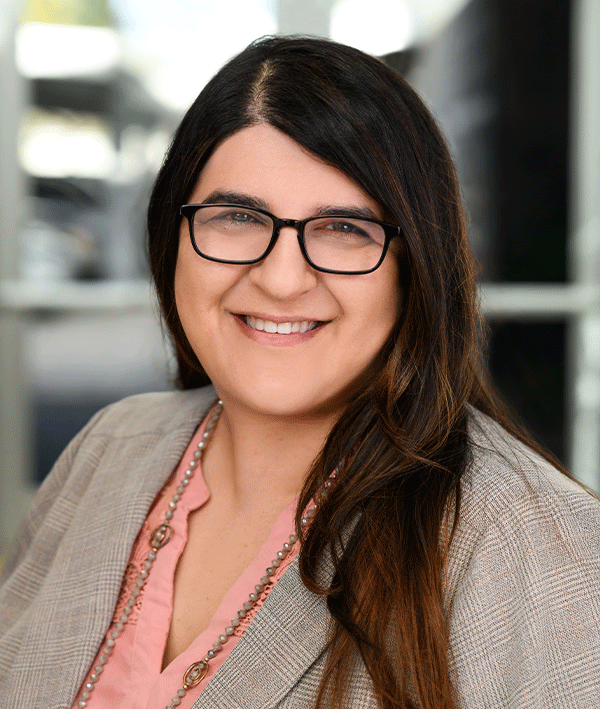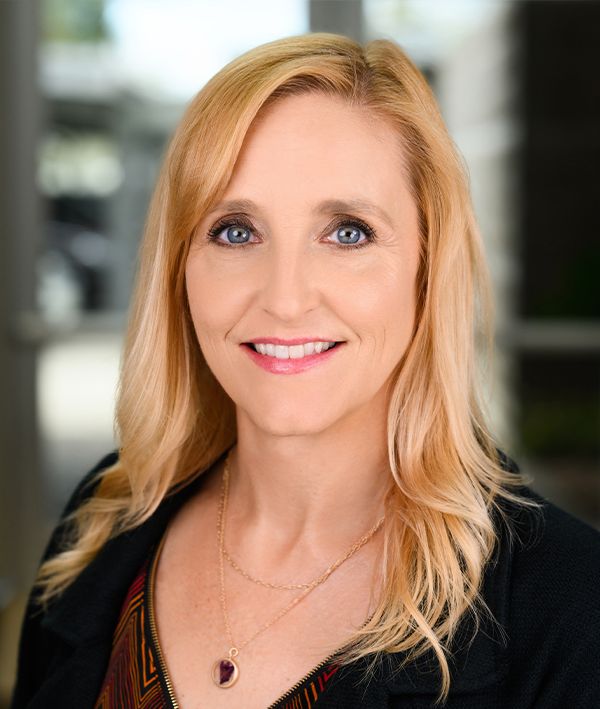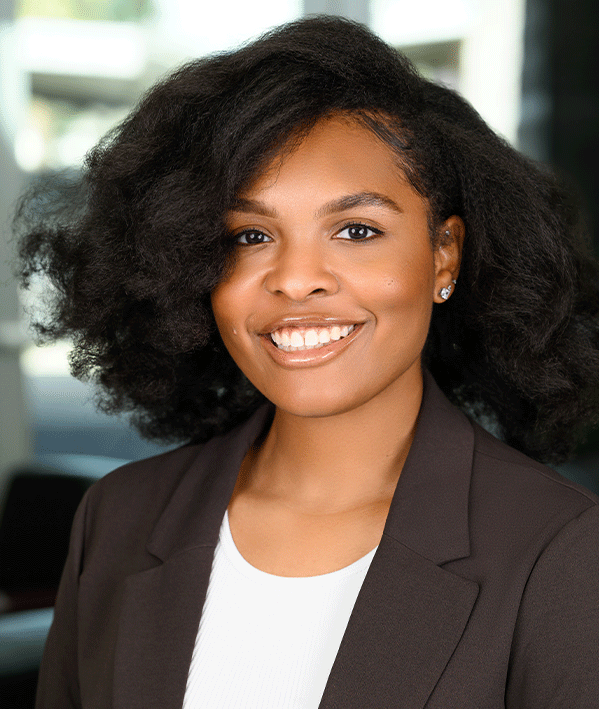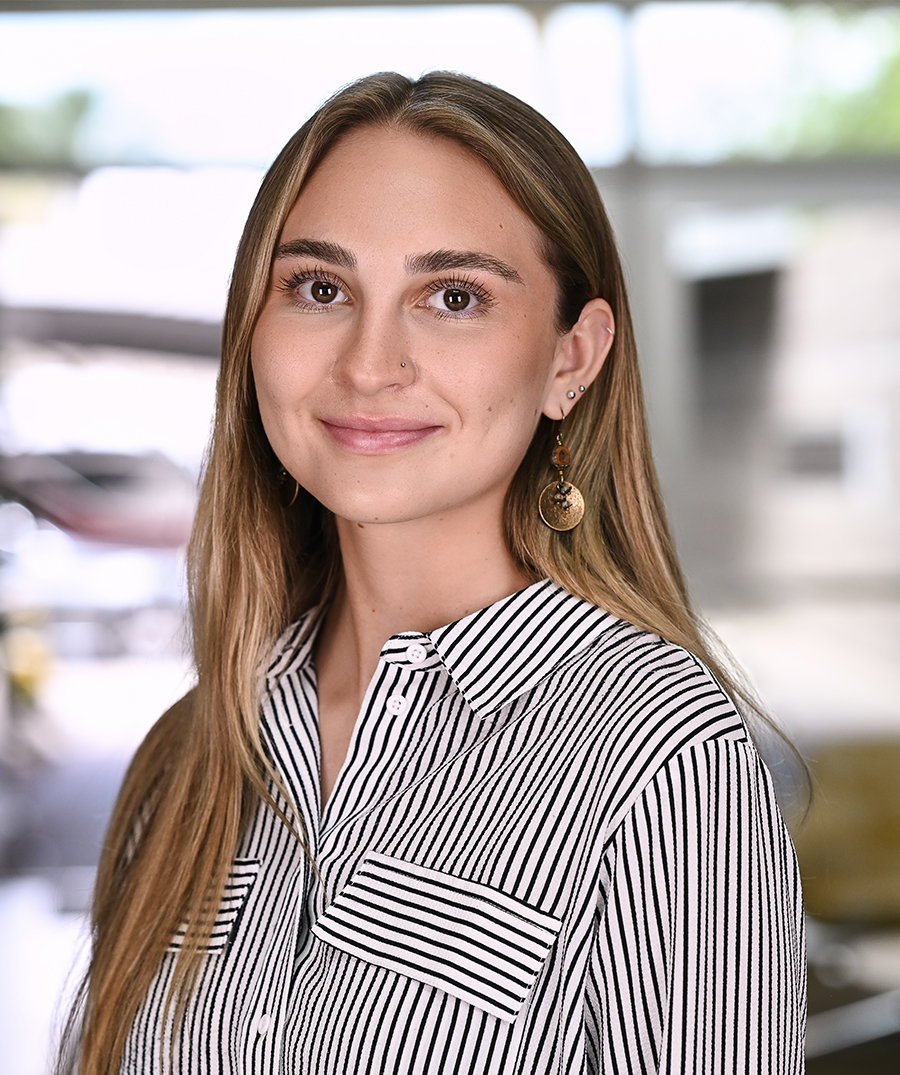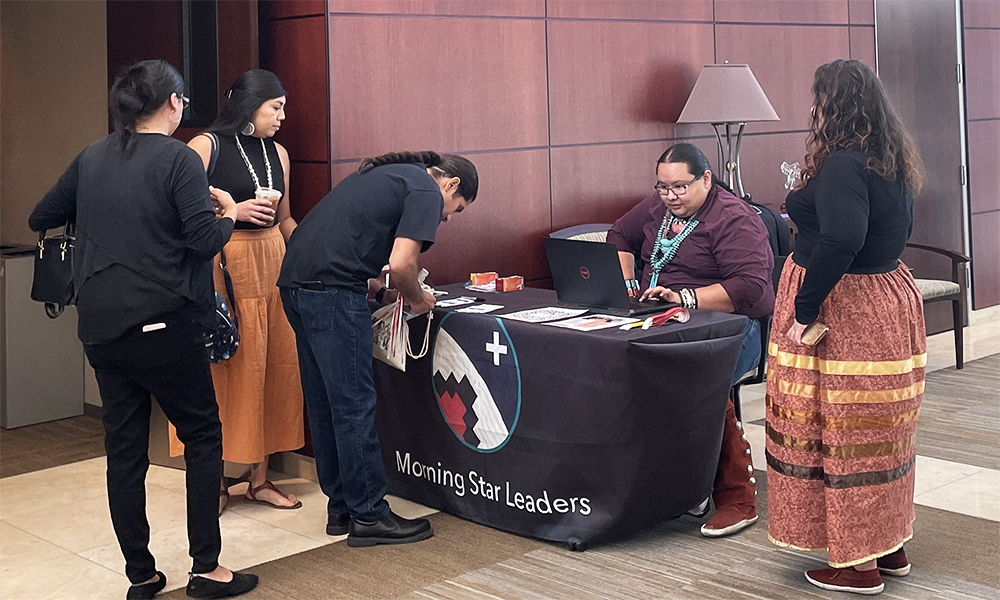
In March 2022, the Arizona Center for Civic Leadership hosted a youth-oriented voter-education workshop in partnership with Morning Star Leaders as part of their Voices of Indigenous Voters Project.
Created in 2019, Voices of Indigenous Voters (VOIV) is a non-partisan, community-based project led by Indigenous youth to empower fellow Indigenous youth as voters by providing voter-education workshops throughout Arizona on voting rights and processes in national, state, local, and Tribal elections. In these workshops, educational programming is delivered to benefit Native youth by sharing the history of Indigenous voting rights and how that history has shaped unique voting systems for tribal communities and urban Indigenous populations.
This half-day program included a presentation on the historical context of voting laws, civic-engagement opportunities, roles and responsibilities of elected officials, how elections work, and the voter-registration process in Arizona. Additionally, the following civic leaders were invited to share their knowledge and experiences in civic life:
- Alberto Olivas: Executive Director, Congressman Ed Pastor Center for Politics & Public Service, Arizona State University Watts College of Public Service and Community Solutions (2011 Flinn-Brown Fellow, 1991 Flinn Scholar)
- Deborah Ann Begay: Maricopa County Justice of the Peace, Moon Valley Precinct
- Wi-Bwa Grey: Council Member, Salt River Pima-Maricopa Indian Community
- Corey Hemstreet: Health Program Manager, Arizona Advisory Council on Indian Healthcare
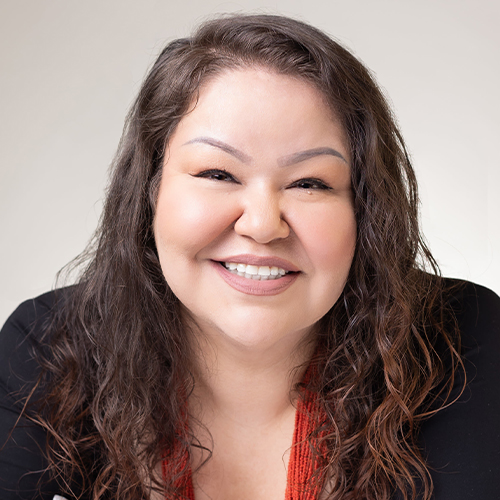
“Native American voting rights are important for not just tribal youth but for all Indigenous peoples. Voting is a right that Native Americans were denied for so long, despite us being first nation citizens of this land, our youth need to know that their voice counts and their vote is powerful. And through these workshops I hope they learn creative ways to be civically engaged in their communities.”
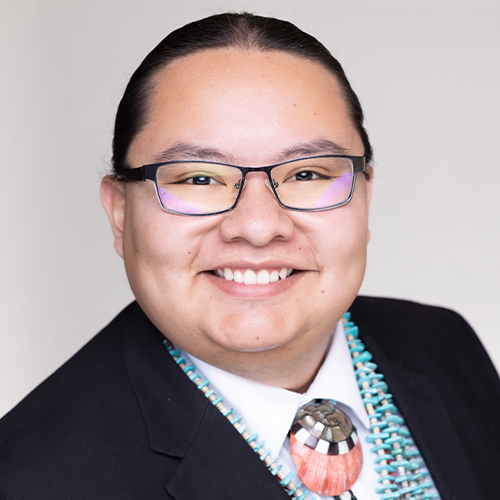
“The Journey our Grandparents endured to pave the way for us now is not one to take for granted. It’s only been till recently we have been able to bring our input into these spaces. Now it is time to share this knowledge with the youth and elders to inspire the next generation. To be those changemakers, and protectors of our sovereignty and culture. To ensure we maintain accountability in our leaders.”
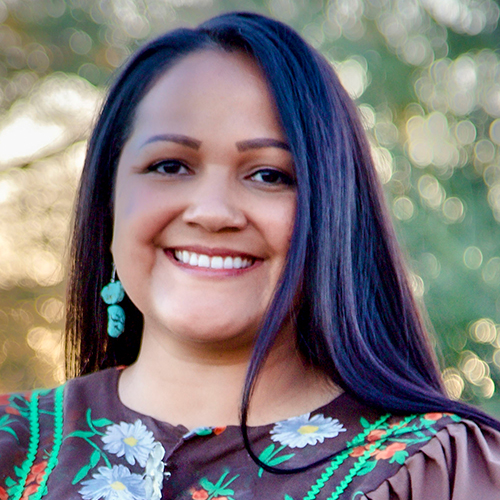
“As an Indigenous woman it’s my responsibility to educate our youth on the process of voting, and how elected officials affect Indigenous communities, to ensure Indigenous people stay informed for many generations to come.”
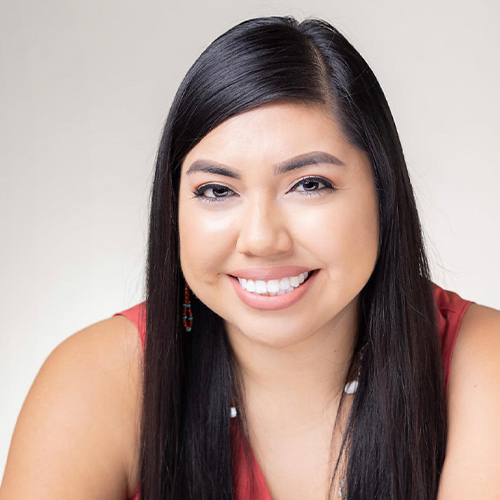
“For far too long many people in our communities have believed that our vote doesn’t count or our voices don’t matter. I do understand why the narrative has been that way and it’s partly because for far too long there have been too many barriers in place that kept our communities from voting. Learning the history about the path to suffrage for Natives in Arizona is key to understanding just how powerful our right to vote is. These barriers wouldn’t exist if they didn’t know how strong our voices are. Thus, this work is important to assure that our tribal communities are well informed on their right to vote, the power of their vote, and the impact we have and can continue to make on decisions that affect our everyday lives.”
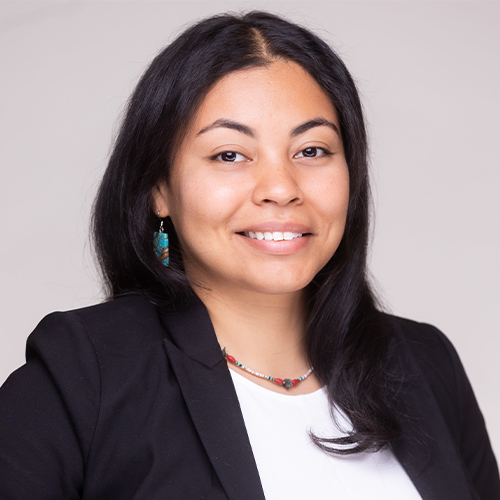
“VOIV is important because it provides a need that our state has yet to meet for our younger indigenous generations. As we started our educational workshops, we have been told several times that our workshops are the first of its kind. Each workshop we hold, we hear and learn more of how important our work is from our audience. Being a part of VOIV means being a part of a strong impact on your community. Researching and teaching your community their federal and state voting rights along with our voting rights history as Indigenous Peoples is a powerful contribution of civic engagement. Not only is working for VOIV an immense opportunity but a beautiful journey of education.”
Learn more:
Voices of Indigenous Voters project
Flinn Scholars Summer Public Policy Institute
